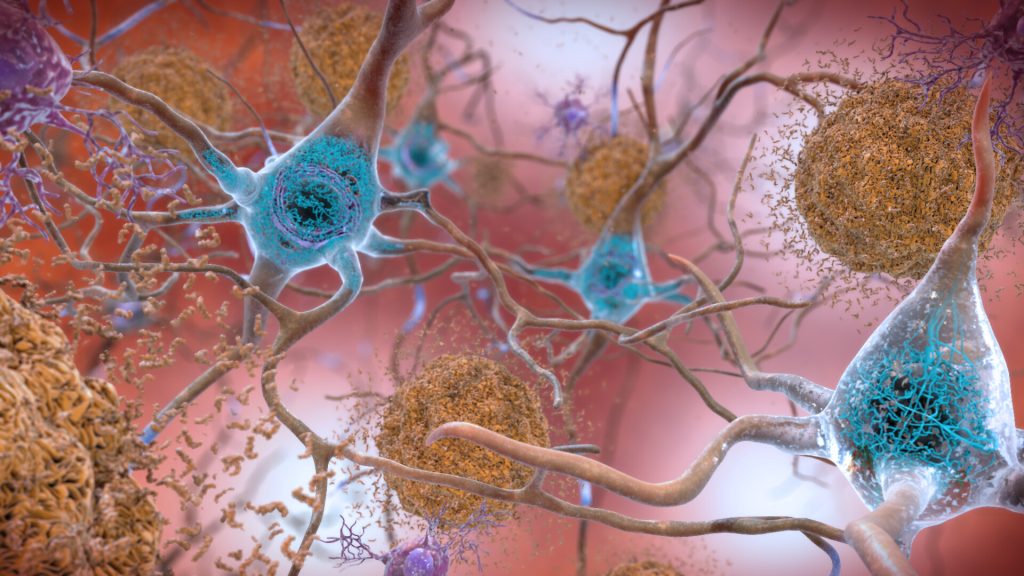More Evidence Linking Blood Clotting and COVID Severity

New research shows that the Omicron variants cause significantly lower levels of blood clotting, thereby providing further evidence for the link between the severity of the disease and the prevalence of persistent micro blood clots in individuals with acute and Long COVID.
Prof Resia Pretorius, a researcher in the Department of Physiological Sciences at Stellenbosch University (SU), South Africa, first made this connection late in 2020 when she detected small amyloid-like blood clots in the plasma of individuals suffering from COVID. Amyloids are a type of protein associated with various inflammatory diseases. As part of a long-term collaboration with Prof Douglas Kell from the University of Liverpool, they showed that these micro clots contained pro-inflammatory molecules. The results of both studies were published in the journal Cardiovascular Diabetology, in 2020 and 2021.
These insoluble micro clots inhibit or may temporarily block blood flow to capillaries and hence impair oxygen transfer to tissues. At present, they believe that this oxygen impairment in various parts of the body can account for most of the symptoms of Long COVID, such as constant fatigue, shortness of breath, brain fog, joint and muscle pain.

Prof Pretorius said the persistent prevalence of micro clots may have significant clinical value: “Our findings suggest that hypercoagulation and vascular damage are key role players causing the wide range of symptoms we see in patients with Long COVID. There is a golden thread running through pathologies noted in post-viral syndromes such as Long COVID.”
More recently, Prof Pretorius and Prof Kell worked with a team of clinicians in South Africa and the United States, to ascertain whether the difference in the degree of clotting between different viral strains of the SARS-CoV-2 virus provides a plausible explanation for the relatively low severity of the Omicron variants during acute COVID infection.
While the earlier variants caused severe disease and critically ill patients, the heavily mutated Omicron variants have been shown to have milder symptoms, most commonly a runny nose, rhinitis headaches, fatigue (from mild to severe), sneezing and a sore throat.
For the purposes of the study, they revisited data and blood samples from stored blood samples from ten patients with COVID due to the Beta and Delta variants between October 2020 and September 2021 before the patients received treatment.
The team also collected blood from patients infected with the Omicron variants. In all ten samples it was found that the Omicron samples presented with a significantly lower total amount of microclots compared to earlier Beta and Delta variants.
In a recent webinar on the topic, Dr Mark Walsh, an emergency medicine physician at the Saint Joseph Regional Medical Center in the United States of America, said the foundational work of Profs Pretorius and Kell has helped them to explain the clotting complications of COVID-induced coagulopathies (CAC) of patients with acute COVID. He is also one of the co-authors on the article.
“We could not understand why patients with CAC would clot and bleed at the same time. We now have the pathophysiological foundation for a point-of-care bedside medicine approach, based on the foundations of excellent research,” he said.
Early in the pandemic, Dr Walsh and his team of emergency physicians in the USA, developed a protocol to provide safe anticoagulation treatment to severely ill COVID patients. The team was guided by thromboelastography, a point-of-care protocol to monitor bleeding and clotting.
According to Prof Kell, more importantly, the findings are consistent with the view that these insoluble micro clots are not a side-effect of COVID-19, but a part of how the disease develops. However, he warned, we do not yet know how this will impact or relate to other post-viral syndromes such as Long-COVID, myalgic encephalomyelitis/chronic fatigue syndrome (ME/CFS), post-Zika or post-Dengue diseases.
The paper, titled “Relative hypercoagulopathy of the SARS-CoV-2, Beta and Delta variants when compared with the less severe Omicron variants is related to TEG parameters, the extent of fibrin amyloid microclots, and the severity of clinical illness” is in press in the journal Seminars in Thrombosis and Hemostasis, and a preprint is available at https://www.researchsquare.com/article/rs-1970823/v1
The webinar, “COVID-induced Coagulopathy (CAC): The clot thickens…or not?” is presented by Dr Mark Walsh, Prof Resia Pretorius and Prof Douglas Kell, and moderated by Dr Asad Khan. It is available at https://youtu.be/yyf7xunWydM




